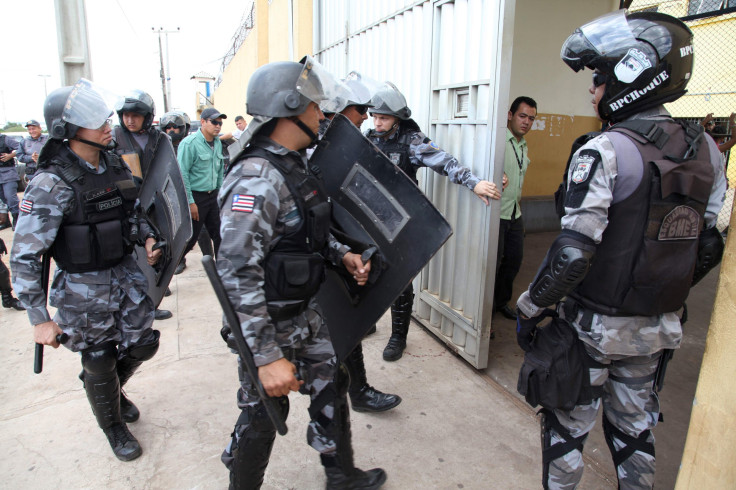Prison Riots In Brazil's Cascavel Result In At Least 3 Deaths, Rioters Take Inmates, Guards Hostage

A prison riot that began Sunday in Brazil has led to the deaths of at least three inmates while five others have been injured in the violence. According to authorities, the prisoners are demanding better living conditions and access to medical aid.
The rioting reportedly erupted Sunday after a prison guard was captured during breakfast. And, in the ensuing violence, two inmates were reportedly beheaded while another was thrown off a roof. The rioting prisoners at the Cascavel correctional utility in the southern city of Parana, have reportedly taken prison guards and several other inmates hostage as negotiations continued 12 hours after the riots began. The 928-bed Cascavel prison accommodated more than 1,000 prisoners, according to Associated Press, or AP.
“A group of prisoners took six inmates hostage; they killed four and have injured two. They also took hostage two guards," Elson Faxina, a state judicial spokesperson, said according to Agence France-Presse, adding that the prisoners now controlled a large part of the prison.
"Their demands are about facilities; it is an older building and they want food brought in," Faxina reportedly said.
At least 700 prisoners are involved in the riots, according to BBC, which reported that four prison inmates were killed in the riots.
“They are using the severed head of one of the prisoners to inflict psychological torture on one of the hostages," Jairo Ferreira, a lawyer for the prison agents' union, said, according to BBC, adding: "There are scenes of terror inside the jail now."
Brazil has the world’s fourth-largest prison population, and more than half a million prisoners are currently in facilities that can accommodate a total of about 340,000 people. While incarcerating an inmate costs the state about 1,300 reais ($570) a month, private contractors reportedly charge 2,700 reais a month ($1,185), making privatization of these facilities a challenge for the government.
© Copyright IBTimes 2025. All rights reserved.





















